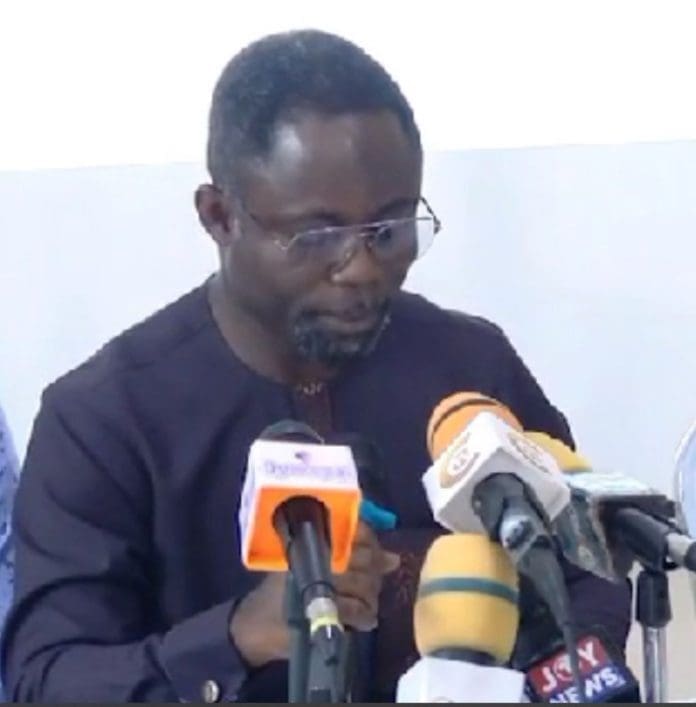Health Minister Kwabena Mintah Akandoh visited the proposed site for Juaboso’s first Nursing Training College on Friday, marking a concrete step toward addressing healthcare education gaps in Ghana’s Western North Region. For the MP who represents Juaboso Constituency, this isn’t just another ministerial duty; it’s personal progress for a district that’s long operated without specialized medical training facilities.
The Juaboso District, located about 65 kilometers northwest of the regional capital Wiawso, has historically depended on training institutions in distant cities to produce its healthcare workforce. That reality is about to change. The minister’s inspection comes alongside another significant development: plans to expand Juaboso Government Hospital to 120 beds, fulfilling promises made earlier this year to strengthen the district’s health infrastructure.
Akandoh’s dual role as both Health Minister and local representative gives him unique leverage to push these projects through Ghana’s bureaucratic machinery. Since taking his oath on February 7, 2025, following parliamentary approval two days earlier, he’s been methodically working through a healthcare agenda that prioritizes underserved regions. Juaboso clearly sits high on that priority list.
The timing carries strategic significance. Ghana faces a persistent challenge of unemployed nurses despite ongoing healthcare staffing shortages, a paradox that stems partly from inadequate training infrastructure in rural and semi-urban areas. Establishing a nursing college in Juaboso could simultaneously create local employment opportunities while producing healthcare workers more likely to serve within the Western North Region rather than migrating to Accra or Kumasi.
What makes this development particularly noteworthy is how it fits into broader healthcare decentralization efforts. For years, nursing education in Ghana concentrated heavily in major urban centers, forcing students from rural districts to relocate, often permanently. This brain drain pattern has left places like Juaboso chronically understaffed despite growing populations. A local training facility could help reverse that trend by anchoring healthcare talent within the community.
The minister didn’t travel alone for this inspection. He brought a delegation that reportedly included technical experts who assessed the site’s suitability for construction. That signals serious intent rather than ceremonial gestures. Government officials who show up with engineers and planners are usually further along in the project timeline than those who arrive with only cameras and speechwriters.
Juaboso District spans 1,291 square kilometers across one of Western North Region’s nine administrative areas, serving a population that depends heavily on cocoa farming and small-scale commerce. Healthcare access remains challenging, with residents often traveling considerable distances for specialized services. A nursing college would complement the planned hospital expansion, creating an integrated health ecosystem that the district has never possessed.
The project also addresses Ghana’s broader nursing workforce planning. Current training colleges struggle to meet national demand, creating bottlenecks that affect healthcare delivery across the country. Each new accredited institution adds capacity to the system, particularly when located in regions where healthcare professionals are scarce. The Western North Region fits that description perfectly.
For Akandoh personally, delivering this college represents political capital that extends beyond his ministerial portfolio. MPs who bring tangible development projects to their constituencies strengthen their electoral positions, but more importantly, they demonstrate that local representation matters at the national level. It’s one thing to promise improved healthcare during campaigns; it’s entirely different to inspect the physical site where that promise will materialize.
The establishment process for nursing training colleges involves multiple regulatory hurdles. The Nursing and Midwifery Council of Ghana must accredit the institution, infrastructure must meet specific standards, and qualified faculty must be recruited. These aren’t quick processes, but the minister’s site inspection suggests the groundwork is underway. Construction timelines for educational facilities typically span 18 to 24 months, assuming funding flows consistently and no major obstacles emerge.
Ghana’s nursing education landscape includes both public and private institutions, with quality varying considerably across providers. A government-backed college in Juaboso would likely follow the public model, offering subsidized education that makes nursing careers accessible to students from lower-income backgrounds. That matters in a district where many families depend on agriculture and face limited economic mobility options.
The broader implications extend to healthcare equity. When rural districts lack training facilities, they perpetuate cycles of disadvantage where urban areas concentrate both educational opportunities and employment prospects. Breaking that cycle requires deliberate infrastructure investments in places like Juaboso, investments that pay dividends across generations by creating local pathways into professional healthcare careers.
Source: newsghana.com.gh










